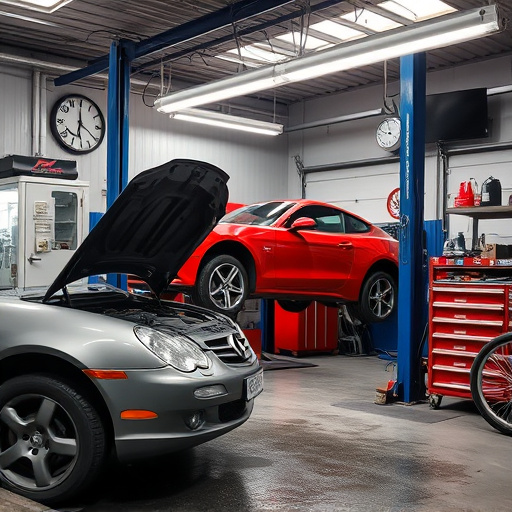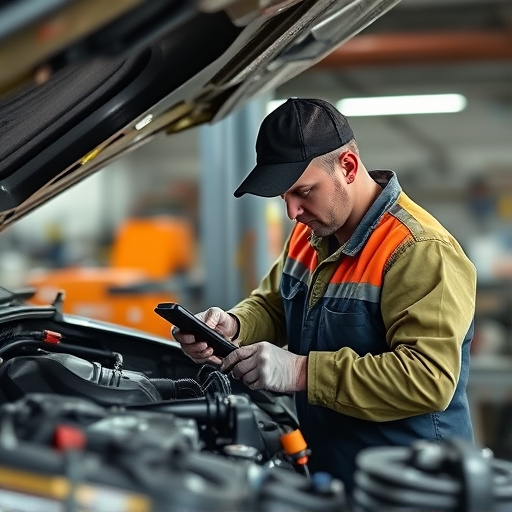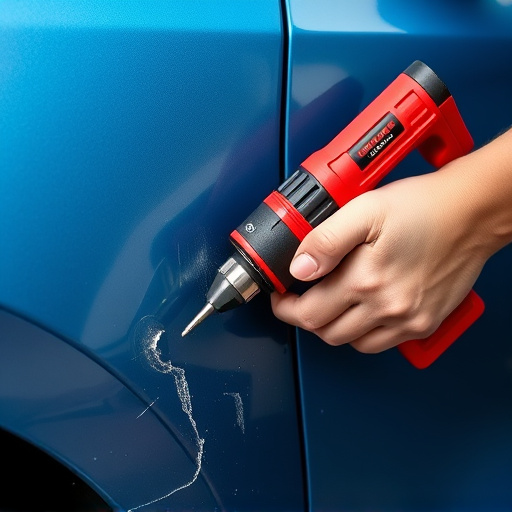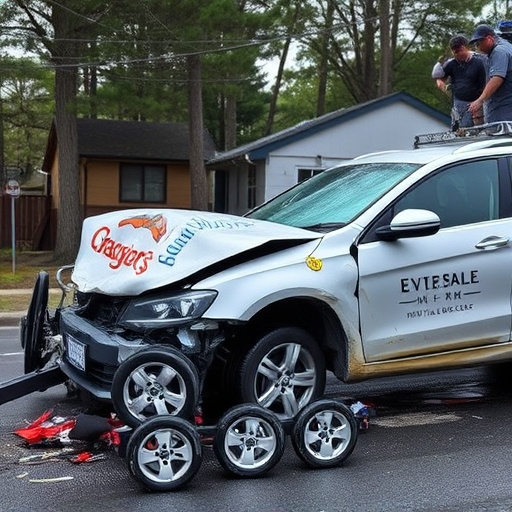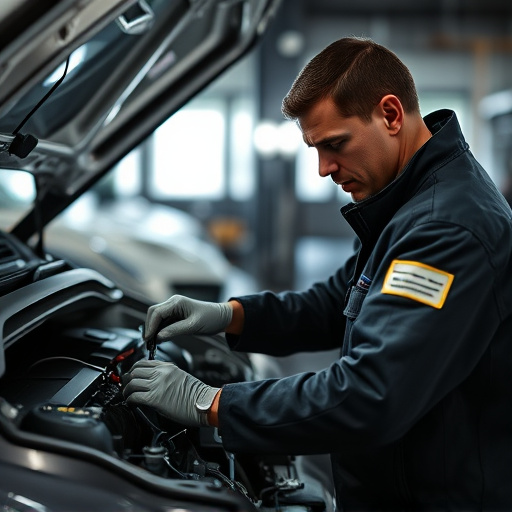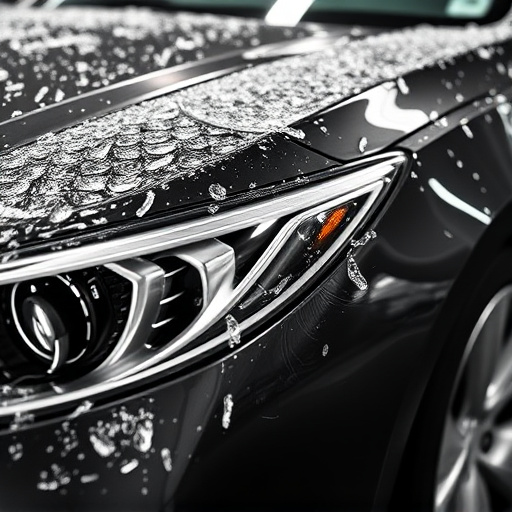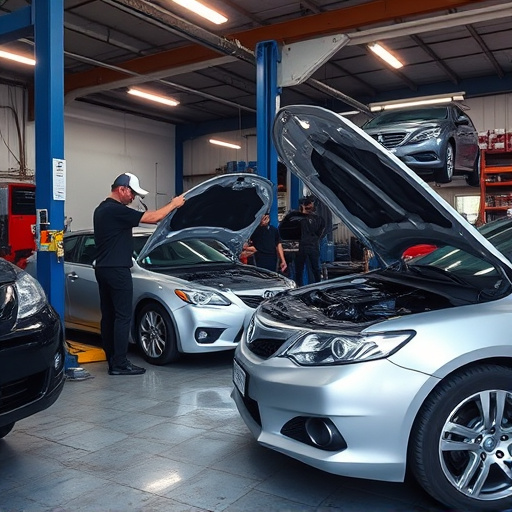Auto glass safety standards, as defined by ANSI, are critical for collision repair services, prioritizing occupant and pedestrian protection. Compliance ensures high-quality materials and manufacturing techniques meet stringent performance criteria, enhancing vehicle and customer safety. Adherence demonstrates excellence, structural integrity, and improved safety features in body shop services. ANSI compliance guarantees product quality, fosters consumer trust, and enhances visibility, crucial for drivers' quick reaction times and overall road safety.
In the realm of automotive craftsmanship, upholding ANSI (American National Standards Institute) safety compliance is paramount. This article explores the multifaceted benefits of adhering to these stringent auto glass safety standards. From enhancing the integrity of vehicle windows to ensuring clear vision for drivers, ANSI standards play a pivotal role in improving overall vehicle safety and public trust. By delving into key areas such as quality assurance and driver protection, we uncover why compliance is an indispensable aspect of the modern auto industry.
- Enhancing Auto Glass Safety: ANSI Standards at Work
- Compliance Benefits: Improved Quality and Trust
- Ensuring Clear Vision: The Impact on Drivers' Safety
Enhancing Auto Glass Safety: ANSI Standards at Work
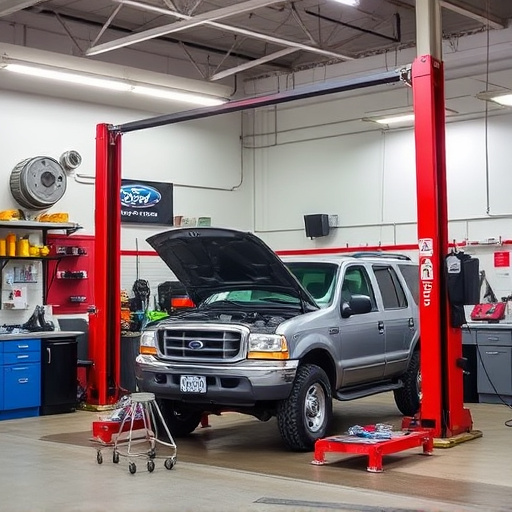
The auto glass safety standards set by ANSI (American National Standards Institute) play a pivotal role in enhancing collision repair services and ensuring automotive restoration to peak condition. These standards are meticulously designed to safeguard both vehicle occupants and pedestrians from potential hazards associated with broken or shattered auto glass. By adhering to ANSI guidelines, body shop services can implement robust procedures that prevent injuries during accidents and facilitate efficient, safe repairs.
Compliance with ANSI regulations involves utilizing high-quality materials and advanced manufacturing techniques to produce auto glass components that meet stringent performance criteria. This not only improves the overall safety of vehicles but also instills confidence in customers seeking collision repair services or automotive restoration projects. The implementation of these standards in body shop services underscores a commitment to excellence, ensuring every vehicle leaves the facility with enhanced structural integrity and improved safety features.
Compliance Benefits: Improved Quality and Trust
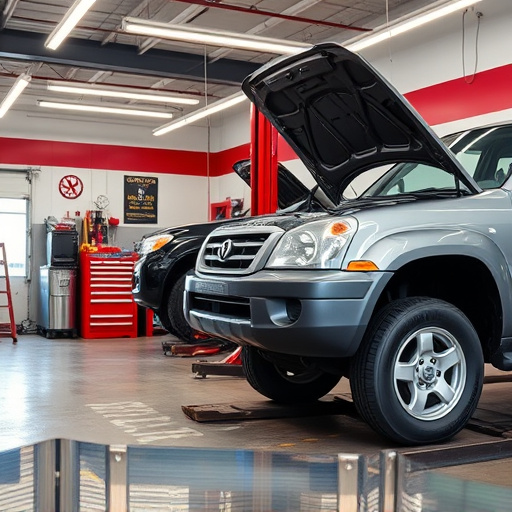
ANSI safety compliance plays a pivotal role in the auto glass industry, ensuring that products meet stringent quality standards. By adhering to these guidelines, businesses signal their commitment to providing safe and reliable auto glass solutions, fostering trust among consumers. This compliance benefits extend far beyond legal requirements; it directly translates into improved product quality and enhanced customer confidence.
When auto glass manufacturers and installers follow ANSI safety standards for materials, manufacturing processes, and installation techniques, it results in more robust and durable products. This is especially crucial for automotive restoration, vehicle dent repair, and car scratch repair services, where the use of compliant materials can ensure long-lasting repairs that withstand the rigors of everyday driving conditions.
Ensuring Clear Vision: The Impact on Drivers' Safety

Ensuring clear vision is paramount for drivers’ safety on the road. Auto glass safety standards, such as ANSI (American National Standards Institute) compliance, play a crucial role in maintaining visibility and preventing accidents. These standards dictate the quality, composition, and performance of automotive glass, guaranteeing it can withstand impacts and maintain integrity without shattering into sharp fragments. This is especially important for drivers’ eyes, which are constantly scanning the environment for potential hazards.
When auto glass meets ANSI safety compliance, it enhances overall vehicle safety. Properly installed and maintained windshield and window glass reduces the risk of injury from broken glass in case of an accident or car dent removal. It also contributes to better driving conditions by ensuring minimal obstruction to the driver’s field of vision during car damage repair or auto glass replacement processes. This clear line of sight is vital for quick reaction times, especially when navigating complex traffic scenarios or dealing with sudden obstacles on the road.
ANSI safety compliance plays a pivotal role in enhancing auto glass safety, boosting trust among consumers, and ultimately improving road safety for drivers. By adhering to these standards, manufacturers ensure clear vision and superior product quality, fostering a more secure driving experience. These benefits underscore the importance of ANSI guidelines in the automotive industry, making them indispensable for maintaining optimal auto glass safety standards.
